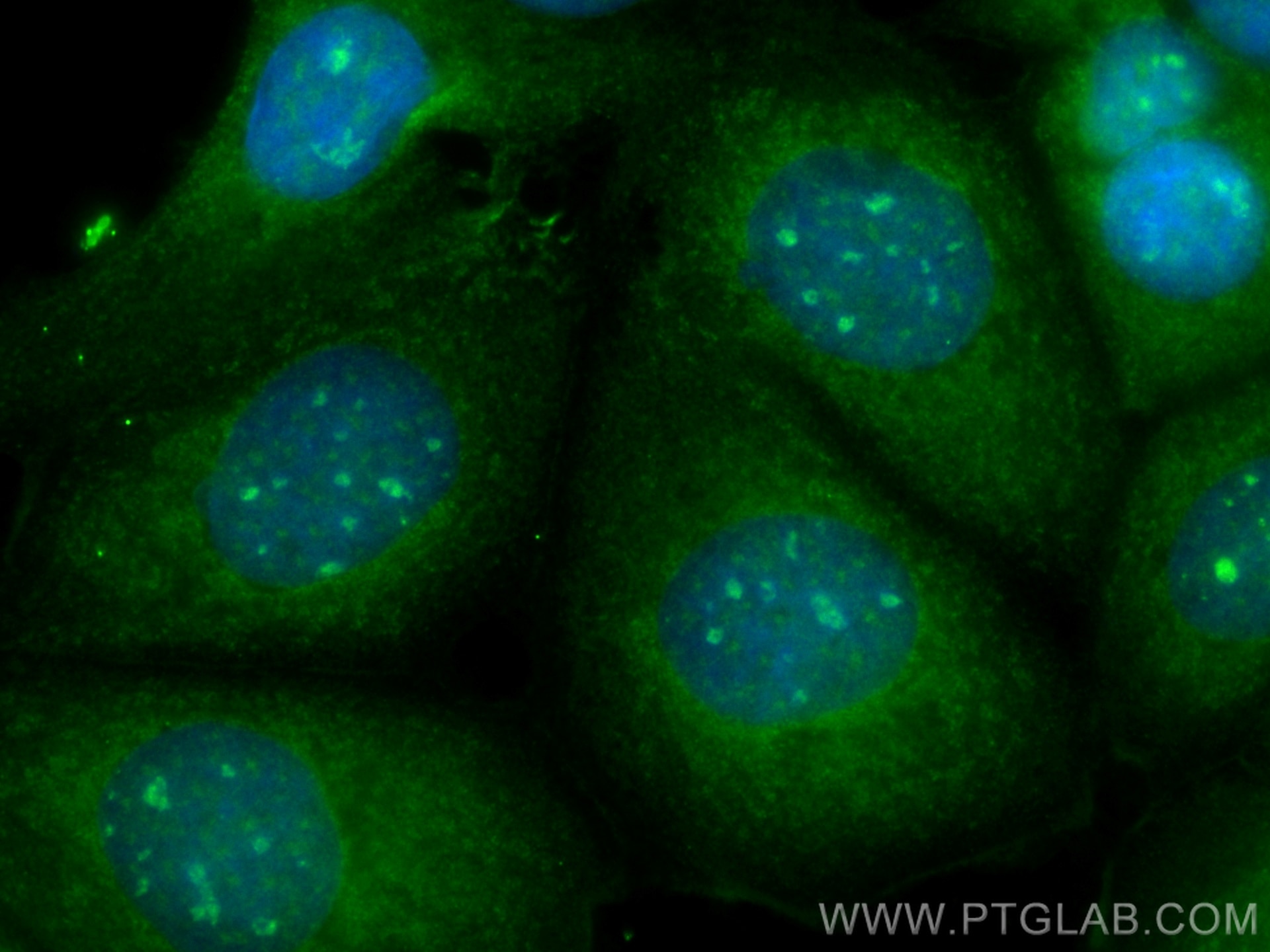Anticorps Monoclonal anti-SKP1
SKP1 Monoclonal Antibody for IF
Hôte / Isotype
Mouse / IgG2b
Réactivité testée
Humain
Applications
IF
Conjugaison
CoraLite® Plus 488 Fluorescent Dye
CloneNo.
1D5G4
N° de cat : CL488-67745
Synonymes
Galerie de données de validation
Applications testées
| Résultats positifs en IF | cellules MCF-7, |
Dilution recommandée
| Application | Dilution |
|---|---|
| Immunofluorescence (IF) | IF : 1:50-1:500 |
| It is recommended that this reagent should be titrated in each testing system to obtain optimal results. | |
| Sample-dependent, check data in validation data gallery | |
Informations sur le produit
CL488-67745 cible SKP1 dans les applications de IF et montre une réactivité avec des échantillons Humain
| Réactivité | Humain |
| Hôte / Isotype | Mouse / IgG2b |
| Clonalité | Monoclonal |
| Type | Anticorps |
| Immunogène | SKP1 Protéine recombinante Ag30709 |
| Nom complet | S-phase kinase-associated protein 1 |
| Masse moléculaire calculée | 19 kDa |
| Numéro d’acquisition GenBank | BC009839 |
| Symbole du gène | SKP1 |
| Identification du gène (NCBI) | 6500 |
| Conjugaison | CoraLite® Plus 488 Fluorescent Dye |
| Excitation/Emission maxima wavelengths | 493 nm / 522 nm |
| Forme | Liquide |
| Méthode de purification | Purification par protéine A |
| Tampon de stockage | PBS avec glycérol à 50 %, Proclin300 à 0,05 % et BSA à 0,5 %, pH 7,3. |
| Conditions de stockage | Stocker à -20 °C. Éviter toute exposition à la lumière. Stable pendant un an après l'expédition. L'aliquotage n'est pas nécessaire pour le stockage à -20oC Les 20ul contiennent 0,1% de BSA. |
Informations générales
SKP1(S-phase kinase-associated protein 1) is also named as EMC19, OCP2, SKP1A, TCEB1L,belongs to the SKP1 family.It is an essential component of the SCF (SKP1-CUL1-F-box protein) ubiquitin ligase complex, which mediates the ubiquitination of proteins involved in cell cycle progression, signal transduction and transcription.
Protocole
| Product Specific Protocols | |
|---|---|
| IF protocol for CL Plus 488 SKP1 antibody CL488-67745 | Download protocol |
| Standard Protocols | |
|---|---|
| Click here to view our Standard Protocols |


